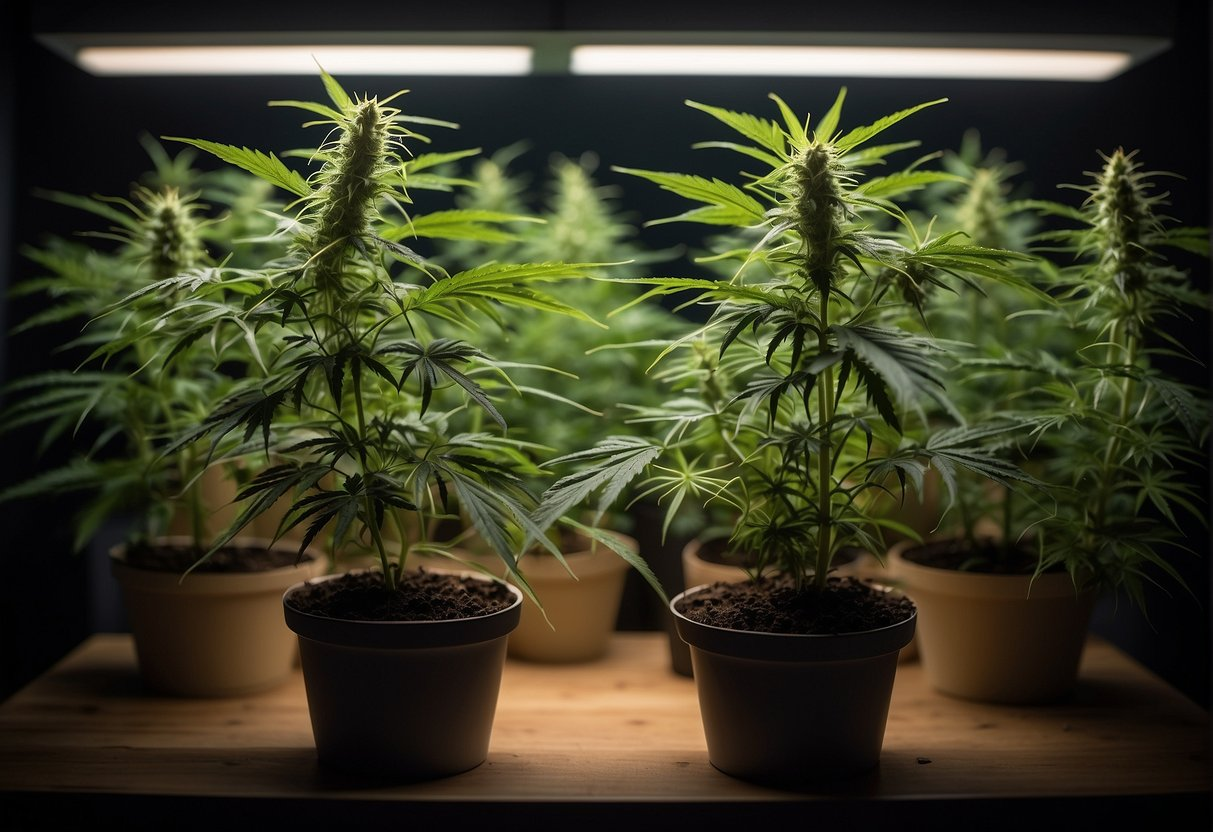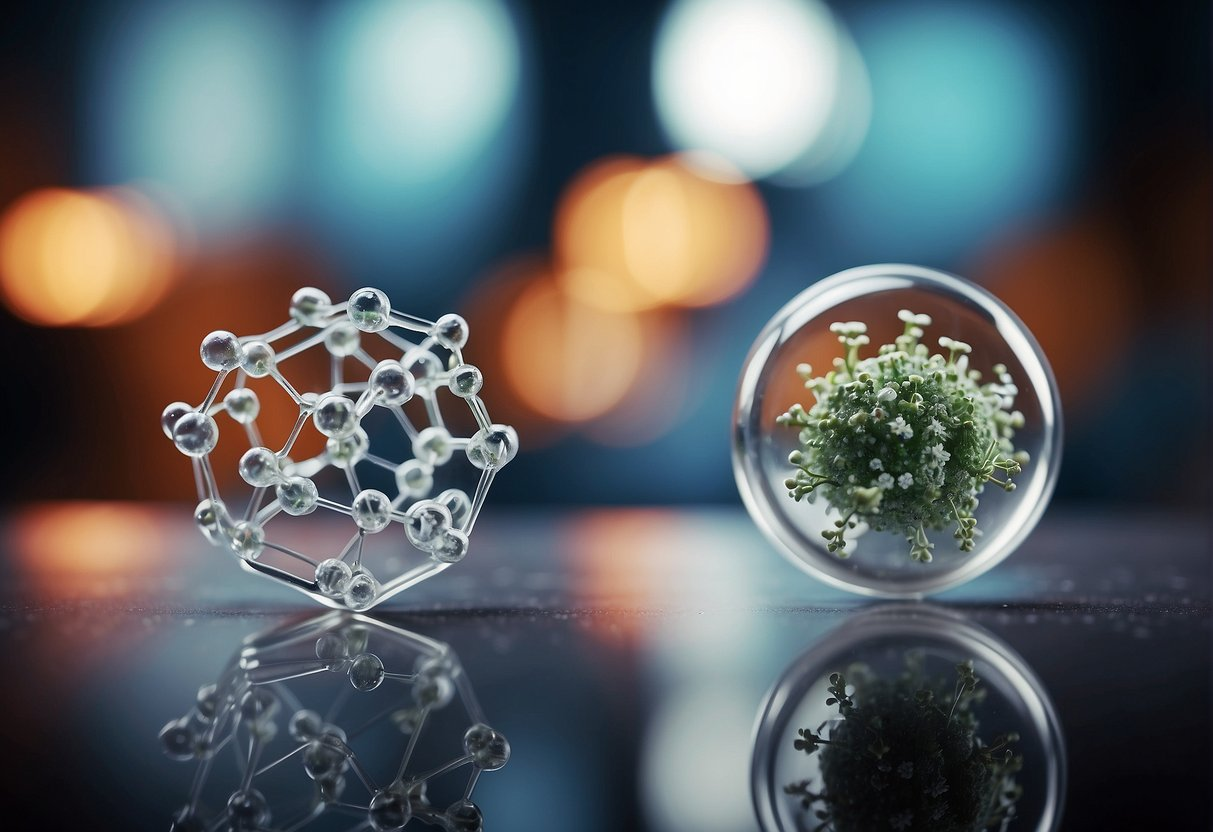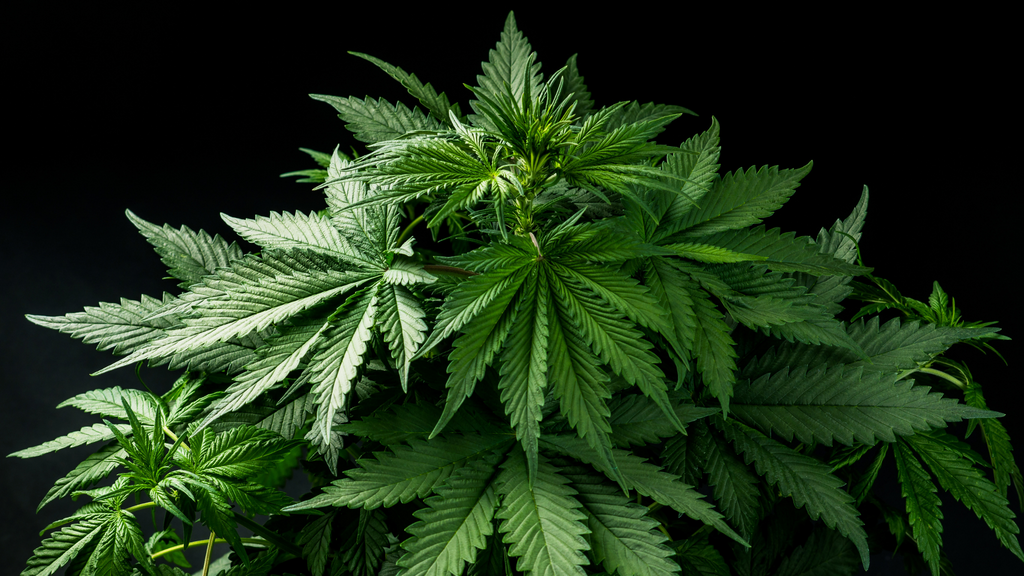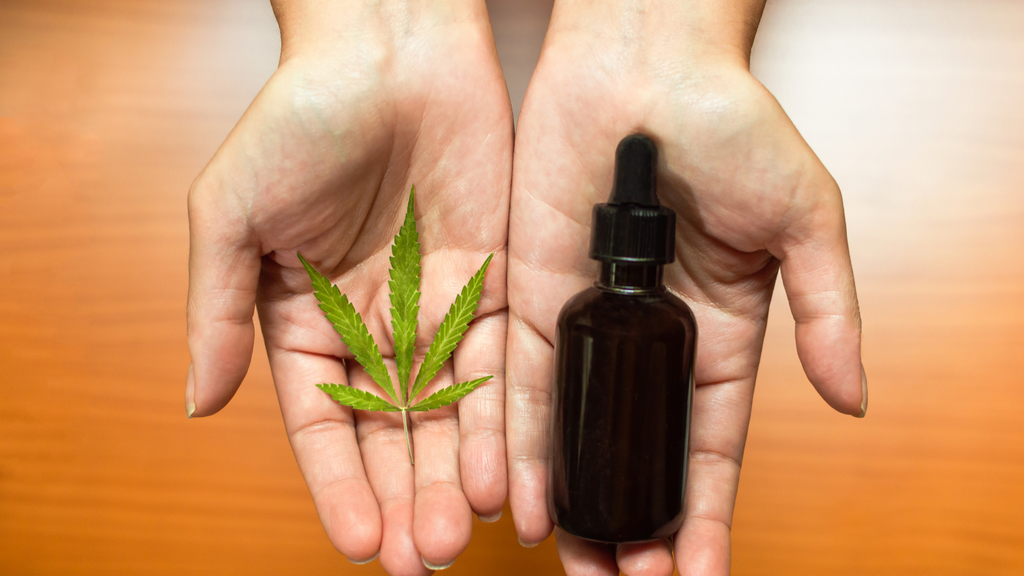In the evolving landscape of cannabis, a wide array of cannabinoids is coming to light, revealing a spectrum of effects and benefits.
Delta 9-THC, being the most well-known and psychoactive compound in the plant, has been a point of reference for users seeking the potentially beneficial and potent effects of cannabis. However, a lesser-known cannabinoid, Delta 11, is emerging from the shadows, presenting a different profile with similar effects, potentially offering a new experience for cannabis enthusiasts.
Understanding the nuances between Delta 11 and Delta 9 can help you make informed choices about your cannabis journey. While Delta 9 is found abundantly in the plant and is synonymous with the classic 'high' associated with traditional cannabis use, Delta 11 exists in trace amounts and requires intricate processes to isolate and study.
This key distinction plays a crucial role in both their availability and the precise impact they have on your body, guiding you toward the experience that aligns with your personal preferences.
Key Takeaways
-
Delta 9-THC is a predominant and psychoactive cannabinoid, while Delta 11 is found in trace amounts.
-
The effects and availability of Delta 9 and Delta 11 differ significantly, influencing user choice.
-
Understanding both cannabinoids is essential for finding the right fit for your individual cannabis experience.
-
Delta 11 THC is thought to be 3 times stronger than Delta 9 because of the way our bodies use and absorb it.
Delta 11 vs Delta 9 THC

Navigating the complex world of THC variants can be tricky but understanding the contrasts between Delta 11 and Delta 9 can guide you toward a more informed experience.
These cousins in the cannabinoid family each have their unique features, from their chemical structure to how they affect your body. Let's dive into some of the key factors that are important to understand with each of these cannabis compounds.
Potency
Delta 9 THC is renowned for its potency and is the most prolific cannabinoid found in the cannabis plant. In contrast, Delta 11 THC is typically present in much lower concentrations, requiring more sophisticated extraction methods to isolate and utilize effectively.
The potency of Delta 11 THC however often surpasses that of Delta 9 THC, marking it as a higher potency cannabinoid capable of delivering intense euphoria and potent effects. This increased potency means that Delta 11 may offer same continuous psychoactive benefits with potentially lower doses compared to Delta 9.
For cannabis users looking for a more profound experience, Delta 11 might be the rare cannabinoid that meets their needs. However, drug tests might detect THC metabolites from both cannabinoids so users should be mindful of drug test implications regardless of their choice.
Effects
Delta 11 THC and Delta 9 THC both interact with the body's cannabinoid receptors, but the psychoactive effects and potential benefits can vary depending on the individual's endocannabinoid system.
While Delta 9 is known for its psychedelic effects, increased appetite, and altered perception, Delta 11 is gaining attention for offering similar benefits with a unique twist. Delta 11 might produce weaker effects on the central nervous system, making it more suitable for those seeking pain relief or appetite stimulation without the full psychoactive intensity of Delta 9.
Chemical Structure
At a molecular level, Delta 11 and Delta 9's structures are distinct, influencing how they interact with your body's receptors. Delta 9 THC's structure allows it to easily bind with your CB1 receptors, leading to its pronounced effects.
The chemical structure of Delta 11 THC is the main difference contributing to its distinct psychoactive effects. These structural variations also affect how each cannabinoid interacts with the body's cannabinoid receptors, ultimately leading to different experiences.
Scientific research is ongoing to explore these differences further, highlighting the need for more research to fully understand the potential benefits and effects of each THC variant.
Extraction Methods
Ever wonder how you get from hemp plant to high? For Delta 9 THC, it's a pretty straightforward process because of its abundance in the cannabis plant. However, for Delta 11 THC, the magic is in the meticulous extraction process, often sourced from less prevalent cannabinoids like CBD through a series of complex conversions. This makes it a rare find and a product of cutting-edge cannabinoid science.
To produce Delta 11, manufacturers must first extract Delta 11 THC from the cannabis plant using sophisticated cannabinoid conversion techniques, given its status as a rare cannabinoid found in only trace amounts within the cannabis plants.
The extraction methods for both aim to produce high-quality cannabis products, but Delta 11 requires more advanced technology to isolate and amplify its presence in cannabis products.
What is Delta 11?

Delta 11 THC is a rare cannabinoid found in cannabis plants, distinct from the more widely known Delta 9 THC. As a naturally occurring compound, it offers unique psychoactive effects and potent effects that vary depending on the individual.
Emerging scientific research suggests that Delta 11 THC may provide similar psychoactive benefits as other cannabinoids, making it a subject of growing interest within the cannabis industry. Despite its newfound popularity, more research is needed to fully understand its benefits and potential effects.
Benefits of Delta 11
Delta 11 THC, similar to other cannabinoids, may offer its own set of potential benefits. You might find it preferable if you're looking for a slightly different experience than what Delta 9 THC provides. Although evidence is still forthcoming, the anecdotal allure of Delta 11 includes a potentially enhanced therapeutic profile.
Delta 11 THC is celebrated for its higher potency and possible ability to provide intense euphoria and pain relief without the negative effects commonly associated with delta 9 THC.
It's considered a rare cannabinoid offering similar benefits to delta 9 but with potentially weaker effects on the central nervous system, making it an attractive option for those seeking medical conditions relief or to reduce stress.
Effects of Delta 11
When you try Delta 11 THC, expect effects that mirror those of Delta 9 but with a distinctive intensity and duration. It's suggested that Delta 11 can produce a more potent psychoactive experience, which might be linked to its faster absorption into your bloodstream.
How is Delta 11 Made?
Delta 11 THC occurs in such low quantities in nature that it requires meticulous extraction and isolation processes. With the approval of the 2018 Farm Bill, which legalized hemp-derived cannabinoids at the federal level, your curiosity for these new THC variants can be met as the industry continues to perfect the method of creating Delta 11 from hemp plants.
Typically, Delta 11 THC's production involves cannabinoid conversion processes that transform other cannabinoids into this rare cannabinoid. This relatively new discovery in the cannabis industry has led to innovative extraction methods that allow for its presence in cannabis products to be enhanced.
The process is intricate, reflecting Delta 11's status as a newfound popularity cannabinoid with potent effects and continuous psychoactive benefits.
Best ways to use Delta 11
When it comes to the optimal use of Delta 11, you'll likely encounter it in various specialized products.
Inhalation is a popular consumption method of Delta 11 with Delta 11 disposable vapes and vape carts. Delta 11 edibles are another common method, with products designed to cater to your preference for potency and experience duration.
Each method provides a different experience, with edibles offering longer-lasting effects and vapes and tinctures providing quicker onset times. Remember to verify the legality of hemp-derived Delta 11 in your state, as regulations may vary despite the federal stance on hemp derivatives.
What is Delta 9?

Delta 9 THC is the main psychoactive compound in cannabis, these psychoactive effects are the key characteristics of marijuana and hemp that most cannabis users are familiar with.
Delta 9 THC interacts with the body's endocannabinoid system to produce these potent effects, which include altered perception, increased appetite, and intense euphoria.
Join us as we unpack hemp-derived Delta 9's benefits, effects, production, and usage to guide you through an understanding of Delta 9.
Benefits of Delta 9
Delta 9 THC may offer a range of potential benefits, including pain relief, appetite stimulation, and psychedelic effects that can help with various medical conditions. Anecdotal evidence and scientific research highlight its effectiveness in providing relief from chronic pain and aiding with cannabis use for therapeutic purposes.
However, cannabis users must be mindful of drug tests as THC metabolites can be detected, the ability for a drug test to indicate THC will vary depending on usage amount and frequency along with your individual metabolism.
Effects of Delta 9
The high you feel from Delta 9 is characterized by a sense of euphoria and altered perception, which can be quite profound. It acts upon your brain's CB1 receptors, affecting your mood, cognition, and even inducing relaxation.
While many find these effects pleasurable, some might experience heightened anxiety or other unwanted side effects.
How is Delta 9 Made?
Delta 9 THC is naturally occurring in the cannabis plant, produced through the plant’s metabolism. The process starts when the precursor cannabinoid, CBGA, is synthesized into THCA. When THCA is decarboxylated—often through heat—the active form, Delta 9 THC, is created. This is why cannabis is typically smoked, vaped, or baked into edibles.
Delta 9 THC is primarily extracted directly from both hemp and marijuana plants, where it exists in abundance as the plant's primary psychoactive compound. The extraction process can vary, but common methods include CO2 extraction and ethanol extraction, which are designed to preserve the potent effects of Delta 9 while ensuring product quality and safety.
Best ways to use Delta 9
Delta 9 THC is available in a variety of cannabis products, including smokables, edibles, tinctures, and topicals. The choice of cannabis use method depends on personal preference, desired effects, and personal needs.
Smoking or vaping offers immediate psychoactive effects, while edibles provide a longer-lasting, more intense experience. Tinctures and topicals offer alternative, non-inhalation options for those seeking the benefits without the smoke.
-
Smoking: Quick onset of effects, ideal for immediate relief.
-
Edibles: Longer-lasting impacts that may aid with insomnia or chronic conditions.
-
Vaping: A less harsh method than smoking, offering fast onset of effects.
-
Tinctures: Drops under your tongue provide a very controlled dosage method.
Delta 11 vs Delta 9: Which is Right for You?

Choosing between Delta 11 and Delta 9 THC ultimately depends on individual preferences, desired outcomes, and specific health and wellness goals.
While Delta 11 may offer a new and potent experience for those looking to explore beyond the traditional psychoactive effects of cannabis, Delta 9 products remain a cornerstone of cannabis use for its therapeutic benefits and well-documented effects.
Benefits of D11 vs D9
When evaluating the benefits of Delta 11 THC versus Delta 9 THC, it's crucial to understand the distinct advantages each offers, shaped by their unique chemical profiles, potency, and effects on the body.
Delta 11 THC emerges as a potent alternative to Delta 9, known for its enhanced potency and intense euphoria, which can be particularly appealing for those seeking powerful psychoactive effects and potential relief from conditions such as chronic pain, anxiety, and stress. This rare cannabinoid has also shown promise in providing significant pain relief and appetite stimulation, making it a valuable option for individuals dealing with medical treatments or health conditions that affect food intake.
On the other hand, Delta 9 THC stands out for its well-researched medical applications and a broad spectrum of therapeutic benefits. As the most studied cannabinoid, Delta 9 is celebrated for its effectiveness in managing symptoms of chronic pain, nausea, vomiting related to chemotherapy, and muscle spasticity.
Moreover, its ability to possibly reduce anxiety and stress, along with its use as a potential sleep aid, makes Delta 9 THC a reliable choice for those seeking a balance between recreational enjoyment and medical relief. The predictability of Delta 9's effects, thanks to extensive scientific research and anecdotal evidence, provides users with a familiar and dependable experience.
Potency of D11 vs D9
Delta 11 THC is often highlighted for its higher potency compared to Delta 9 THC. This means that Delta 11 may produce stronger psychoactive effects from smaller quantities, potentially offering a more intense experience of euphoria and pain relief.
For users seeking profound effects or those who have higher tolerances, Delta 11 might be the more appealing choice. However, its higher potency also means users should approach Delta 11 with caution, starting with low doses to gauge their individual reaction.
Delta 9 THC, while potent in its own right, is generally considered to provide a more predictable range of effects, making it a familiar option for both new and experienced cannabis users. Not to mention, its effects are well-studied, with a wide range of cannabis products available to cater to different preferences and tolerance levels.
Effects of Delta 11 vs Delta 9
The effects of Delta 11 THC and Delta 9 THC can vary significantly between individuals, but there are some general distinctions. Delta 11 THC is noted for producing intense euphoria and a possibility of significant pain relief, with some users reporting a more profound sense of relaxation and well-being. It's also associated with appetite stimulation and may offer continuous psychoactive benefits that some find more enjoyable or beneficial than Delta 9.
Delta 9 THC, on the other hand, is known for its strong effects, including altered perception, increased appetite, and a sense of potent effects that can range from relaxation to intense psychoactive experiences. It's the most researched THC variant, with extensive evidence supporting its use for a variety of medical conditions.
Extraction Methods of Delta 11 vs Delta 9
Extraction methods for Delta 11 THC are more complex due to its status as a rare cannabinoid found in trace amounts in the cannabis plant. Advanced cannabinoid conversion techniques are often required to produce usable quantities of Delta 11, involving sophisticated technology and processes to isolate and amplify its presence in cannabis products.
In contrast, Delta 9 THC is more abundant in cannabis plants, particularly marijuana plants, making its extraction process more straightforward. Common methods include CO2 extraction and ethanol extraction, which are designed to efficiently isolate Delta 9 THC while preserving its purity and potency for use in a wide range of cannabis products.
Where to Buy Delta 11 and Delta 9 Online

When you're on the hunt for Delta 11 or Delta 9 THC products, the convenience of buying THC online can't be overstated. You can find a variety of product forms, ranging from gummies and vapes to tinctures, each offering different dosages, onset times, and duration of effects.
Gummies are a go-to for ease and discretion, gradually soothing your day as they take a bit longer to kick in. For quicker relief, vapes and vape cartridges provide an almost instantaneous onset. Or opt for tinctures, balancing expediency and control to tailor your THC journey.
Which is Better: Delta 11 or Delta 9?
When you're exploring the complex world of THC products, understanding the nuances between Delta 11 and Delta 9 can greatly influence your experience. Delta 9 THC, the main psychoactive compound in cannabis, is known for its abundance in marijuana plants. It orchestrates a symphony of effects on your sensory perception, often amplifying colors, sounds, and tastes.
On the other side of the spectrum is Delta 11 THC, a less-talked-about compound due to its scarcity in nature. It's typically produced in the body as a metabolite of Delta 9 after consumption, especially when you ingest it. If you're someone who seeks increased focus or an extended experience with THC, Delta 11 might capture your curiosity. It's suggested to cross the blood-brain barrier more swiftly, potentially offering a longer-lasting and more psychoactive encounter.
While both Delta-11 and Delta-9 THC share psychoactive properties, their differences in availability, extraction, and notably, the intensity of effects set them apart. Delta-11 THC emerges as a potent newcomer with the promise of delivering a stronger experience, challenging the traditional dominance of Delta-9 THC in the cannabis landscape. As the cannabis industry continues to evolve, the exploration of cannabinoids like Delta-11 THC underscores the ongoing quest for deeper understanding and harnessing the plant's full potential, offering users a broader spectrum of experiences and benefits to discover.
*By using this website, you agree to and are subject to the following Legal Disclaimer, which is part of our Terms of Service. The information provided on this website does not and is not intended to constitute legal advice or reliable statements of the status of any laws.

